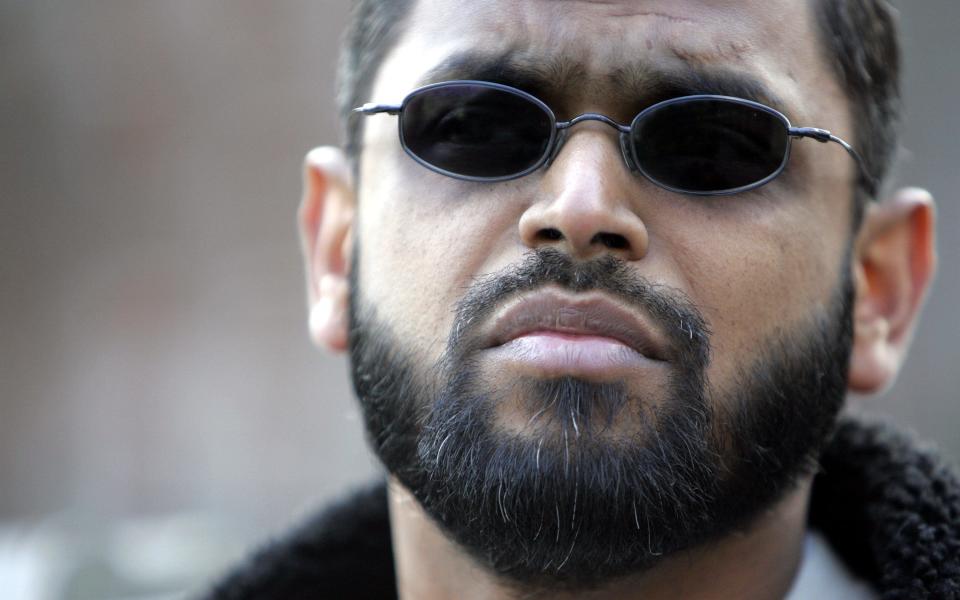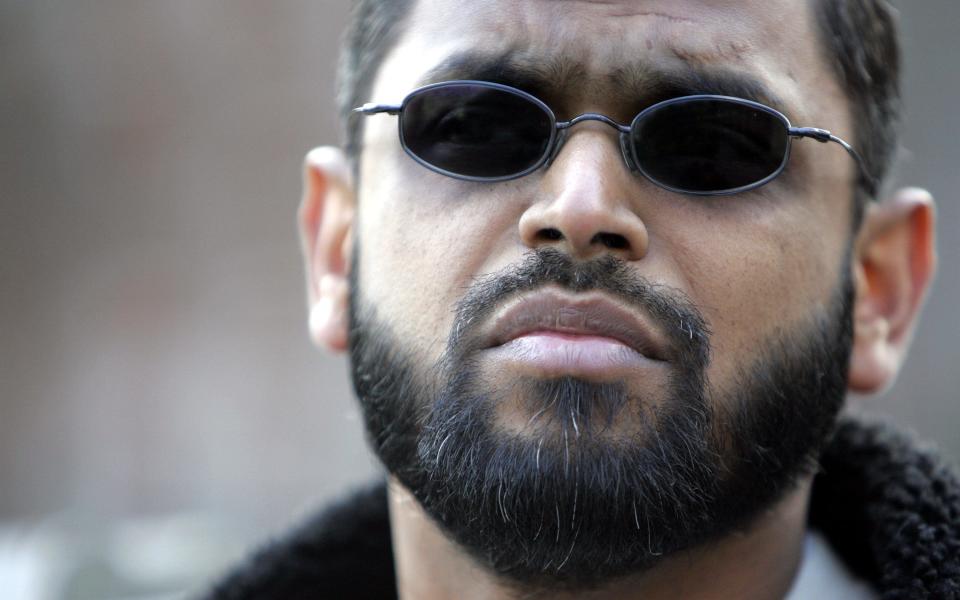Questions raised over whether campaign group which labelled Jihadi John 'beautiful young man' received payments from former Guantanamo detainees
Questions are being raised over whether Government compensation paid to Guantanamo detainees may have been used to fund the campaign group that described the Islamic State executioner ‘Jihadi John’ as a ‘beautiful young man’.
Cage, which sparked outrage after a senior employee praised Jihadi John, yesterday declined to say what donations it had received from the British detainees, awarded compensation of as much as £20 million.
But any suggestion that Cage may have been inadvertently funded through taxpayers’ money will appall its critics.
Tim Loughton, a member of the Home Affairs Select Committee, said that members of the public would be “doubly outraged” if it emerged that taxpayers’ money had been used to promote terrorist supporting organisations.
“It is bad enough that someone suspected of terrorist activity and then putting it beyond doubt by his own violent actions was funded by the taxpayer.
“If it now transpires that he or others could have used our money to promote terrorist supporting organisations or even bombs then the public will be doubly outraged.
“We need urgent answers to questions about why he was not considered a security risk, how he was monitored in the UK and what basic money laundering rules were applied to see if he used his ill gotten gains to support proscribed organisations.
“I would also expect the Government to take action to recover any of this money from his estate.”
Cage’s accounts show the organisation received more than £300,000 from unidentified donors in the three years that followed the Government’s announcement of a deal in November 2011 to make payments to former Guantanamo prisoners.
It is not clear what proportion of those donations - if any - came from the former prisoners.
Cage insisted that data protection laws meant they could not provide details of any contributors and a spokesperson for Cage told the Telegraph: “….. regarding [our] silence. That in any way shape or form cannot be inferred as accepting of a point, as there are statutory pieces of legislation that prevent us from commenting or divulging individuals donations/addresses etc. We must all pay adherence to due process and the rule of law."
17 British Gitmo detainees and the £20m compensation fund:
Cage campaigned for the release of the Guantanamo detainees, among them Moazzam Begg. Mr Begg, who spent three years in US custody suffering terrible mistreatment including torture, joined Cage on his release and became a director in 2009. He quit that role in 2012 but remains its director of outreach work. There is no suggestion that Mr Begg, who has never been convicted of any crime, has done any wrong.
Jamal al-Harith, 50, who blew himself up in a suicide bomb attack in northern Iraq earlier this week, was also given support by Cage and contributed to at least one report by the organisation into torture and abuse.
Reports have suggested Harith, a Muslim convert born Ronald Fiddler, had received £1 million in compensation for two years in Guantanamo Bay although his lawyer suggested yesterday he received about £250,000.
Another of the Guantanamo prisoners Tarek Dergoul has also worked closely with Cage. Mr Dergoul helped to oversee a documentary for Cage which featured a number of former Guantanamo detainees. Mr Dergoul travelled to Portugal with Mohammed Emwazi, nicknamed ‘Jihadi John’ in 2011 before Emwazi went to Syria where he became the Islamic State’s notorious executioner of western hostages.
Mr Dergoul, who has never been charged with any terrorist offences, told one newspaper: “Obviously I don’t agree [with what Emwazi did]. Just because someone knows someone, you can’t just ruin his life.”
Another of the detainees who received compensation Feroz Abbasi was a Cage caseworker up until his resignation in 2011.
Cage provoked outrage in 2015 when its research director Asim Qureshi held a press conference in which he suggested that Emwazi had been “a beautiful young man”. Mr Qureshi also called him “extremely gentle, kind”.
The comments caused outrage. Boris Johnson, the foreign secretary who at the time was London mayor, said of Mr Qureshi’s comments: “It is beyond satire and amounts to nothing less than an apology for terror”. David Cameron, then prime minister, said any groups should be ‘ashamed’ of associating with Cage
Cage has admitted it made mistakes in its response to the unmasking of ‘Jihadi John’ as Emwazi. Emwazi had sought help from Cage before he went to Syria to fight jihad, complaining he was being pursued by British intelligence.
In response to the damaging criticism provoked by Mr Qureshi’s comments, Cage ordered a report into its links to Emwazi and its attempts to help him before he fled to Syria.
The report found significant failings in its response and condemned the hastily arranged press conference at which Emwazi was praised. Adnan Siddiqui, the director of Cage, said at the time: “On this occasion we made mistakes and we recognise this. We will be studying the report carefully and looking to implement the recommendations.
“Despite the mistakes made, we feel our intervention still made an important contribution to the debates around security services’ accountability, and abuses of the rule of law in the war on terror.”

 Yahoo News
Yahoo News 

